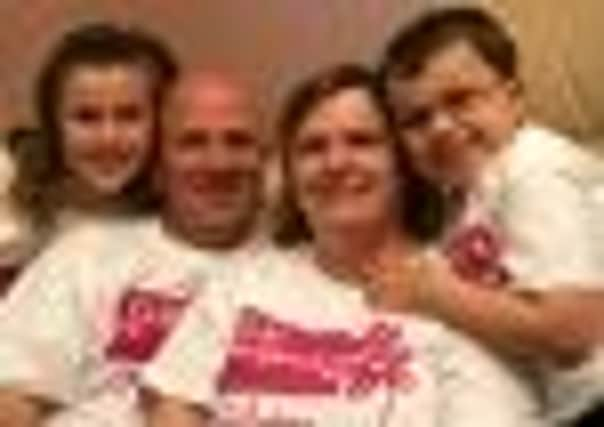Forced into debt because a child had cancer


But a few months into Ross’s treatment, the couple both had to give up their jobs and go to the bank for a £20,000 loan to avoid having to sell their home. In a report released today, the charity CLIC Sargent highlights the plight of families forced into debt to deal with unexpected costs when their children are diagnosed with cancer. It has called on the Westminster government to ensure parents have enough money to cope.
The study, released at the start of Childhood Cancer Awareness Month, found that almost two thirds of parents surveyed were getting into debt, with two in five borrowing from a credit card. A fifth took out a loan.
Advertisement
Hide AdAdvertisement
Hide AdParents and young people with cancer (aged 19-24) told the charity they spent on average £367 and £277 respectively on cancer-related expenses monthly, and with treatment lasting up to three years, the bills soon mounted up.
Ross Granger, now aged eight, was born with cancer in both kidneys, but was only diagnosed a month before his first birthday.
His parents, from Prestwick, Ayrshire, were told he would have to be admitted immediately to Yorkhill Hospital in Glasgow, meaning a 70-mile round trip to visit.
Mrs Granger, 42, slept on a fold-down bed in Ross’s hospital room for five months while her husband, a self-employed taxi driver, drove up every morning and returned home at night to care for their daughter, Chloe-Anne. The costs soon began to mount alarmingly.
Mrs Granger said: “When we got the news about Ross, our whole world fell apart. I had to give up my job in a card shop to be with him in hospital and my husband stopped working as he couldn’t focus on his job and the safety of passengers, never mind guarantee to take on jobs miles away when he could be called back immediately.
“We had no income, and the bills for electricity, mortgage and gas were starting to come in. The return trip for Shaun from Prestwick was about £7 a day for five months. I was eating in the hospital canteen, which was about £10 a day, and we had to buy lots of new clothes for Ross because of constant sickness and diarrhoea.”
The couple received two grants of £170 from CLIC Sargent which they said “was a great help” but did not “scratch the surface” of what they needed.
Ross had major surgery involving the removal of one-and-a-half kidneys and the tumours wrapped around them. He has been in remission for six years and is enjoying a happy life, but his parents will be repaying their loan until he starts secondary school.
Advertisement
Hide AdAdvertisement
Hide AdLorraine Clifton, CLIC Sargent’s chief executive, said: “Everyone is suffering in this economic climate, but parents of children with cancer are amongst the hardest hit. The extra costs can be significant. It’s shocking to hear that some families felt driven to debt in order to get through financially.
“We’re dependent on the generous support of the public and other donors to fund our vital work to support young cancer patients, but the money we raise can only be part of the solution. We want to work with the government and other organisations to find better ways of ensuring young people and children with cancer, and their families, have the financial support they need.”
A Scottish Government spokesman said: “Children with cancer and their families deserve the best possible support, provided as locally as possible.
“That’s why children’s cancer services were identified as a priority for investment during development of the National Delivery Plan for Children and Young People’s Specialist Services, published in January 2009; £32m was allocated to improve a number of specialist services, including cancer.
“We would encourage the Department of Work and Pensions, to ensure there is sufficient provision of support available to families of children with cancer.”